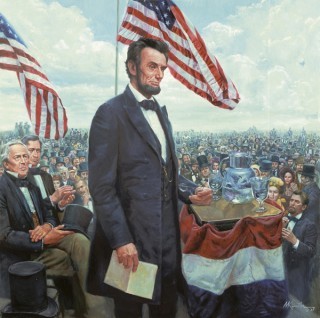Effective leadership in any generation

Listening to the audiobook, Team of Rivals by Goodwin, provided interesting insight on effective leadership. The author used Abraham Lincoln as an example of how one can develop leadership ability throughout their lifetime. Lincoln’s leadership style is relevant in today’s culture and there is much we can learn from his life and presidency.
The book begins by explaining Lincoln’s background and his extraordinary path to becoming the President of United States. Lincoln was in a four-way race to seek the nomination for president, running against three highly educated lawyers that came from influential families. Lincoln had no formal education, but he taught himself to read by studying the Bible. He did not come from an influential family.[1] The takeaway is that a person does not necessarily need formal education to be an influential leader. There is nothing that cannot be achieved if one sets his or her mind to the task. Lincoln surrounded himself with good people that were both for and against with him, and he sought their input before making any major decision.[2] He understood the need to hear viewpoints that both agreed and disagreed with his own, and tried to understand the views from both enemies and friends. There is value in opposing opinions, and a strong leader seeks counsel to make in informed and intelligent decisions. In today’s context, successful leaders know they should surround themselves with individuals who will challenge their decisions and way of thinking.
Lincoln understood the value of empowering others to make decisions. In the 1850’s America was divided over the issue of slavery and states rights. Southern states wanted to expand slavery into new territories, while northern states wanted to prevent this. President Lincoln wisely understood that the new territories should determine whether or not they wanted slavery.[3] By allowing these territories to make their own decision, Lincoln demonstrated the leadership skill of empowerment and giving others the right to act autonomously.
Lincoln understood the power of presence, by making himself available to the public and providing positive assurance. During his presidential campaign Lincoln gave public speeches in large venues, enabling the common people to get to know him and his agenda in a more personal fashion. He also understood the need to be in the trenches and to pay attention to what is happing across within his world. I am reminded of a TV show called undercover boss, where senior level executives went undercover and worked side-by-side with their employees. This made a huge difference in their understanding of the company and aided them to improve the morale of their employees. Leaders need to be constantly engaged with their front-line and to be aware of the problems they face, and they should be proactive to help resolve issues.
In the first days of his presidency, Lincoln was forced to choose whether to stand by his principles or back down to the opposition. South Carolina had succeeded from the Union, and Lincoln had to decide whether or not to abandon Fort Sumter or reinforce it. He chose to reinforce the fort, even though a few days later South Carolina fired upon it and forced surrender.[4] Regardless of the outcome, this sent a message that he would stand behind his values and beliefs. A leader should not waver when the times get tough, but should stands behind the employees to help them navigate through difficulties.
Lincoln was not afraid to admit when he had made a bad decision. In the early days of the Civil War, he appointed General McClellan as commanding general of the Union forces. McClellan was a good organizer, but not a good battlefield commander. Lincoln realized his mistake and removed McClellan as commanding general, even though it was an unpopular decision. Effective leaders admit when they have made a mistake and then seek to correct it as soon as possible. They are not afraid to make difficult decisions, even if they are unpopular.
Leave a Reply
You must be logged in to post a comment.